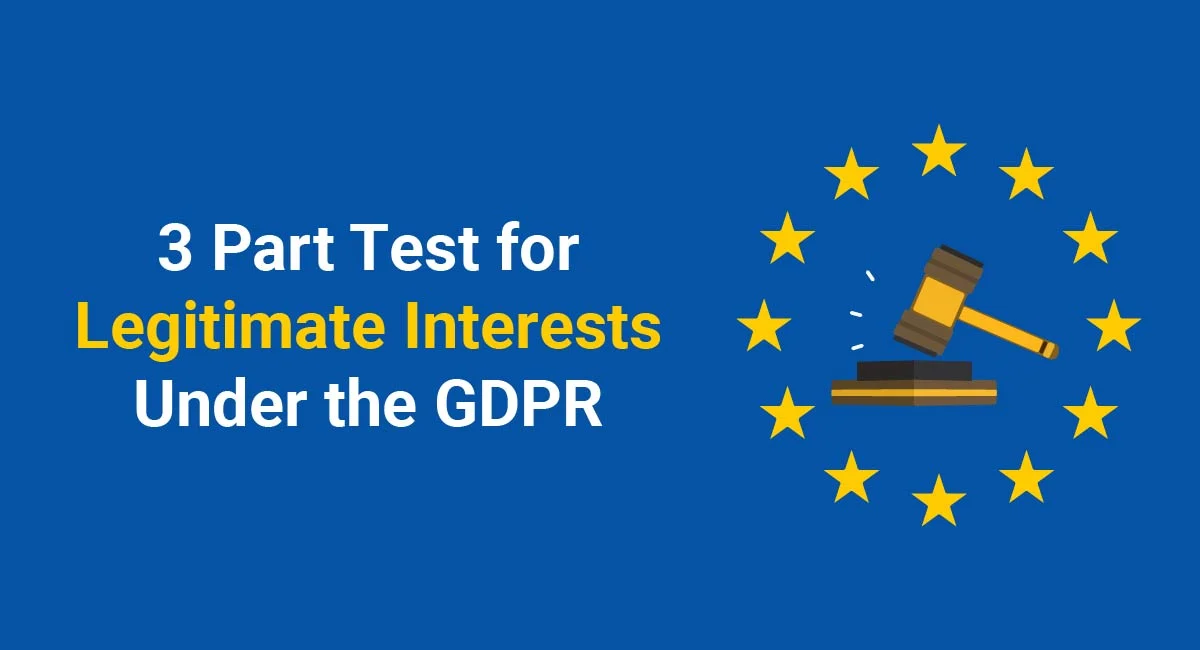The GDPR’s Legitimate Interest Assessment: Safeguarding Data Controllers and Processors from Costly Pitfalls
The General Data Protection Regulation (GDPR), enacted to fortify data protection and privacy rights, has brought significant changes to the way organizations handle personal data and building trust with data subjects. Among its essential provisions is the requirement for data controllers and processors to conduct a Legitimate Interest Assessment (LIA) before processing personal information. This crucial evaluation helps determine whether processing data is justifiable based on legitimate interests or whether explicit consent is necessary.
Failure to perform a thorough LIA poses grave consequences, exposing data controllers and processors to the risk of substantial fines and potential invalidation of data processor contracts. In this article, we delve into the significance of LIA compliance and explore how it acts as a protective shield for businesses, ensuring their adherence to GDPR’s stringent regulations and safeguarding the trust of data subjects.
Understanding Building Trust with Legitimate Interest Assessment (LIA)
The GDPR’s principle of “legitimate interest” recognizes that certain data processing activities are essential for businesses to function efficiently while simultaneously respecting individuals’ privacy rights. This implies that organizations can process personal data without explicit consent if they have a legitimate interest that overrides the privacy rights of data subjects. However, this legitimate interest must be balanced carefully against the individual’s rights and freedoms.
The Importance of Conducting LIA for Building Trust
Data controllers, the entities responsible for determining the purpose and means of data processing, bear the primary responsibility for LIA execution. Failing to conduct a proper LIA may lead to inadequate justification for processing personal data, leaving them susceptible to potential legal consequences. By performing a comprehensive LIA, data controllers can:
- Mitigate Risks of Fines: Non-compliance with LIA requirements can result in severe financial penalties imposed by data protection authorities. The GDPR empowers regulators to levy fines of up to 4% of the organization’s global annual turnover or €20 million, whichever is higher. This can have devastating effects on a company’s financial health and reputation. Recently the Hungarian Data Protection Authority fined an organisation 670,000 Euros for an inadequate and trivalisation of its Legitimate Interest Assessment and how it communicated this.
- Uphold Transparency and Trust: By conducting an LIA, data controllers demonstrate their commitment to transparency and responsible data processing. This fosters trust among data subjects, showing them that their personal information is being handled ethically and with due consideration for their rights.
- Strengthen Legal Defense: In the event of a data breach or legal dispute, a robust LIA serves as compelling evidence to prove that data processing activities were carried out in accordance with GDPR’s principles. It establishes a strong legal defense against potential accusations of non-compliance.
The Significance of LIA for Data Processors
Data processors, on the other hand, play a critical role in executing data processing activities on behalf of data controllers. While they do not have the same level of responsibility for conducting an LIA as data controllers, they must assist data controllers in ensuring compliance. Failure to do so can lead to several detrimental consequences for data processors:
- Contractual Risks: Data processor agreements typically require processors to comply with applicable data protection laws, including GDPR. If data processors neglect their responsibilities in assisting with LIA compliance, data controller contracts may be deemed invalid, potentially leading to termination of business relationships.
- Reputational Damage: Invalidation of contracts or any involvement in data breaches due to non-compliance can result in severe reputational damage for data processors. This can lead to loss of trust from existing clients and deter potential customers from engaging their services.
LIA Three Part Test
Organisations need to satisty the following three part test and document details within its LIA assessment. This also needs to be clearly documented within its Privacy Notice.
- Purpose Test: Is the processing of personal data driven by a legitimate interest?
- Is the processing aligned with your organizational interests?
- Is it compliant with relevant laws and regulations?
- Does it adhere to ethical standards?
- Necessity Test: Is the processing of personal data indispensable to your objectives?
- Is the level of data processing proportionate to achieve your intended goals?
- Have you explored less intrusive alternatives for data processing?
- Balancing Test: Is your legitimate interest balanced against the rights of the individuals whose data you are processing?
- Does the processing pose a high-risk to privacy and data protection?
- What is the likely impact of the processing on the rights and freedoms of your users?
Conclusion
In conclusion, the Legitimate Interest Assessment serves as a pivotal safeguard for data controllers and processors under the GDPR’s stringent privacy regime. By diligently conducting LIAs, organizations can ensure compliance with the law, mitigate the risks of substantial fines, maintain a strong defense against legal disputes, and above all, protect the privacy and trust of their valued data subjects. Prioritizing LIA implementation demonstrates a commitment to ethical data processing, setting the foundation for sustainable and privacy-centric business practices in today’s data-driven world.

